Magic’s newest expansion takes us to the newly introduced plane of Thunder Junction for a rootin’ tootin’ treasure huntin’ time. A new set means new mechanics, and we’ve got some good ones. In this article we’ll talk about the mechanics and offer some thoughts on what they mean for Commander and how they’ll play.
New Mechanics
Outlaws
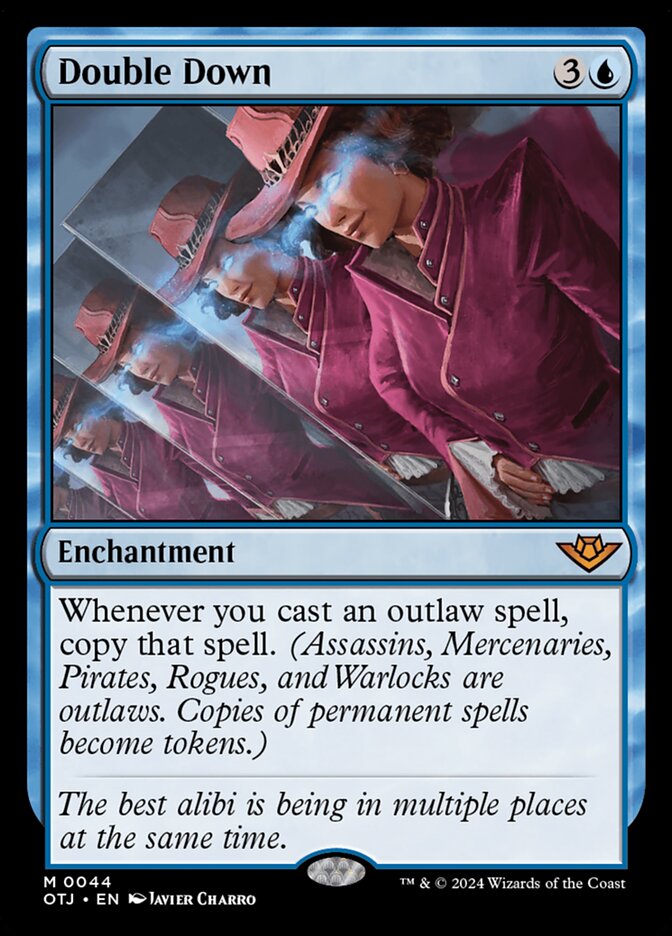
An Outlaw is a new way to refer to a number of existing creature types, namely Assassins, Mercenaries, Pirates, Rogues, and Warlocks. In the set this is used to refer to a number of creatures and give them abilities like haste or first strike, as well as as an ability that triggers when a creature of those types is cast, deals damage, or similar.
FromTheShire: Currently there haven’t been a ton of these revealed, but this is a fun way to add typal support without having to create a new creature type, and also offers Wizards a way to buff multiple types of lagging creatures at once in the future.
BPhillipYork: I sort of like these broad “meta-types.” On the other hand I kind of don’t. There’s definitely design space here, outlaw makes sense, and fits the theme of Thunder Junction. Caring about one particular type is a bit difficult and narrow; I could certainly see goblinoids or something to include both orcs and goblins and hobgoblins. It’s straight out of D&D (okay maybe not the current version; I could not confidently tell you what is in the current version) but the downside is cognitive load. The amount of crap you have to know about to play Magic is just steadily increasing. Especially with Commander being the most popular format, games just include so many damn mechanics now. Outlaw is essentially another one on top of it, and you’d think outlaws would commit crimes but of course they do not. So, useful in some senses, but if they keep doing this there will just be an endless proliferation of mechanics.
Committing a Crime
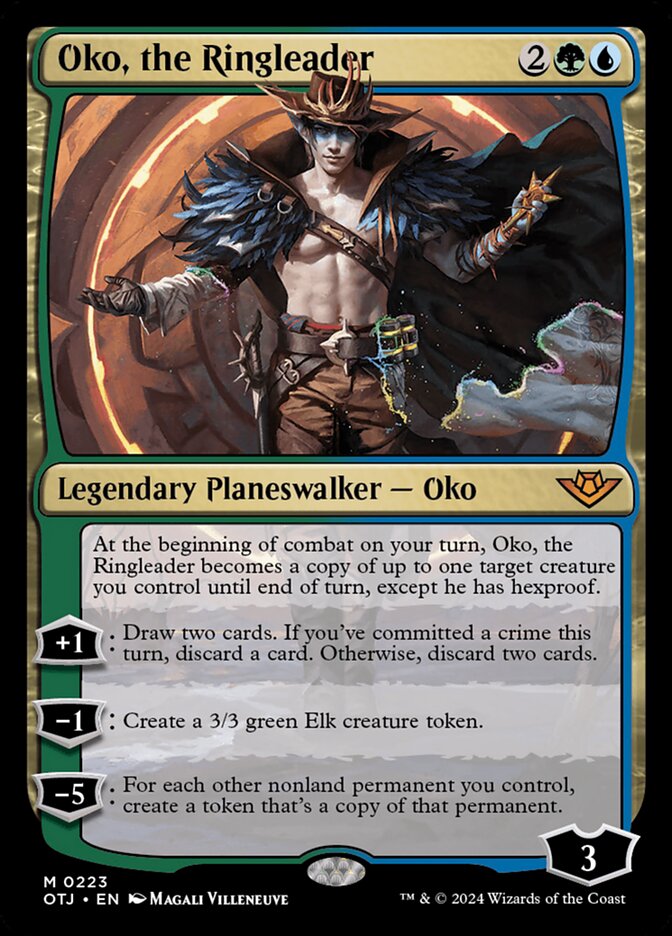
Committing a crime refers to casting a spell, activating an ability, or putting an ability on the stack that targets one or more of an opponent, a spell or ability an opponent controls, a permanent an opponent controls, or a card in an opponent’s graveyard. Note that this happens as soon as the spell is cast or the ability is activated or put on the stack, so a crime will still have been committed no matter what then happens to that spell or ability.
FromTheShire: Well, it certainly seems easy to trigger at least. The strength of the ability is really dependent on the effect given per card, but because it doesn’t rely on set specific cards this has legs going forward.
BPhillipYork: Okay, well now interacting with your opponents is actually a crime. This set feels very judgy. It’s fine; it’s basically like prowl but instead of being linked to your creatures doing things it’s linked more broadly to you doing anything. I really can’t get over how toxic making it a crime to interact is for a format that already struggles with how it’s played and how the rules committee has generally encouraged kind of non-interactive play, and modeled it, forever. But other than being sort of ironic funny, it’s like, whatever, a trigger to enables things and actually encourages you to interact and so is good in that sense. Go forth, do crime.
Spree
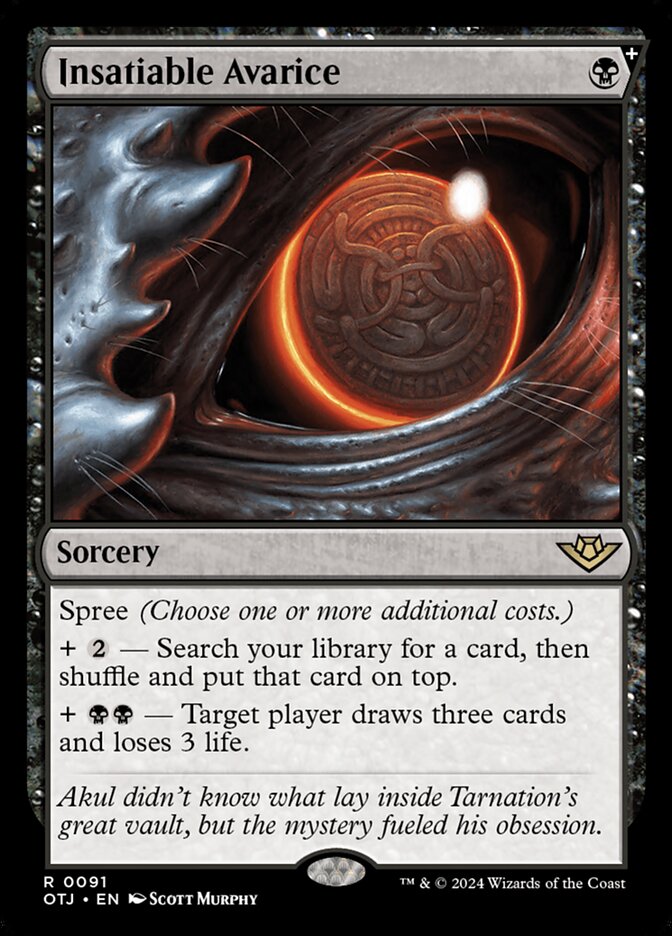
Spree is a new keyword for modal spells. Cards with spree are cast for their printed mana value but must have at least one or more additional costs paid, and each mode may only be selected once. This does not change the mana value of the card, and even if the spell is cast for free the spree cost must still be paid.
FromTheShire: I’m always a huge fan of the flexibility of modal spells and we have seen some good ones so far. This also seems really aggressively fair with not letting you cheat the additional costs.
BPhillipYork: This is modal kicker with a themed name, which is totally fine. “Pay more, do more things” makes perfect sense and helps deal with one of Magic’s problems, which is cards being useful at certain stages of games and not others, so this is inherently a good thing and they should do more of it. Really each mode should be a crime on a card with spree, but even here in our example one of the modal abilities is not a crime. So like, flavor fail, there. But that would’ve also really limited the design space for these modes, so it’s a bit understandable. Still could’ve been more fun if sprees were when 3+ crimes were committed in a turn and enabled more powerful effects on cards. Though that’s also dangerously close to a storm count.
Mounts and Saddle
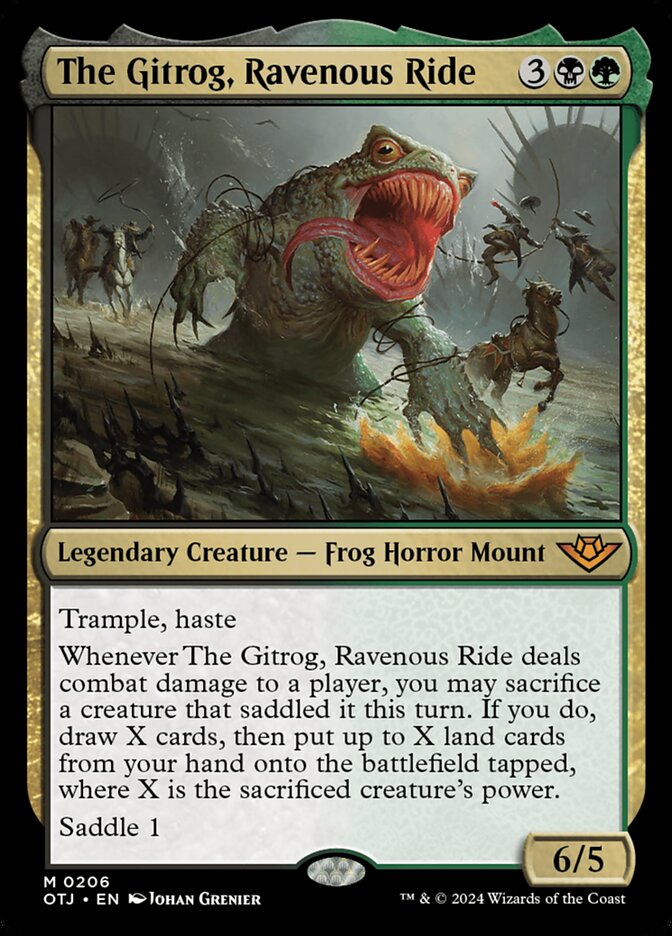
This is a simple one. Mount is a new creature type that doesn’t do anything on its own other than indicate creatures that can be saddled, and saddle works like crewing a vehicle.
FromTheShire: Pretty basic; this is another one that heavily depends on the individual creatures that are printed with the ability. Again, it is fortunate that it is largely self contained; you don’t need any kind of special creature to do the saddling. Additionally, this is one I expect we will see a good bit moving forward which mean further support.
BPhillipYork: Works slightly different from crewing vehicles in that it doesn’t enable them to attack, and that’s a useful distinction; instead mount gives you a payoff only when the creature attacks or deals combat damage. Also can be useful as a way to tap things you want to tap.
Plot
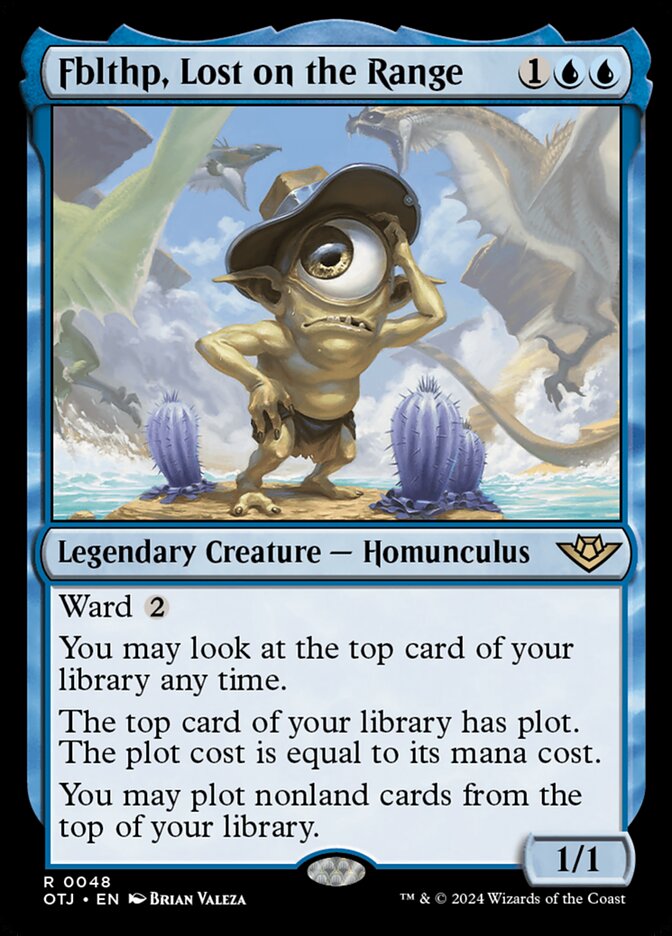
Plot allows you to pay a cost and exile a card from your hand to be cast for free later. Both the ability and the cast are done at sorcery speed, and you can’t cast the spell on the same turn you plotted it.
FromTheShire: Another pretty fair-feeling mechanic to me; the sorcery speed and not being able to cast it on the same turn you plot really limits it from being busted at first glance. There might be something here though, free spells tend to break things in ways Wizards did not anticipate.
BPhillipYork: This is foretell but buffed and made thematic. Foretell was fine, and this is fine too. Casting from exile (or from not the hand) is increasingly bonused and plenty of cards care about it now, so just another useful way to get those triggers.
Bounties
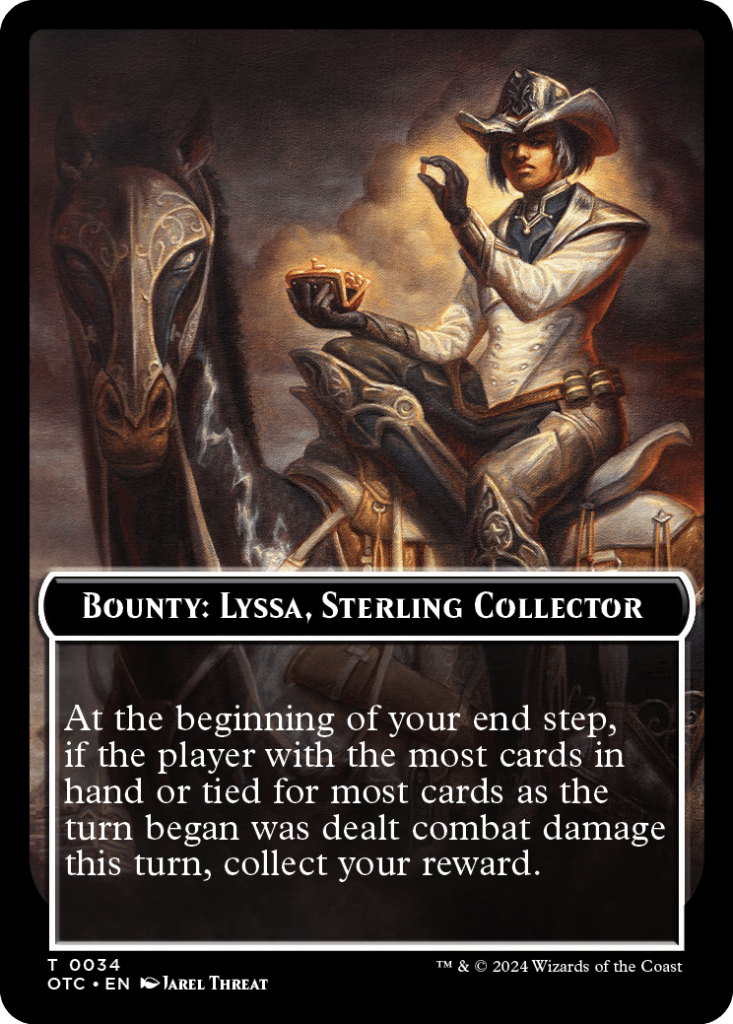
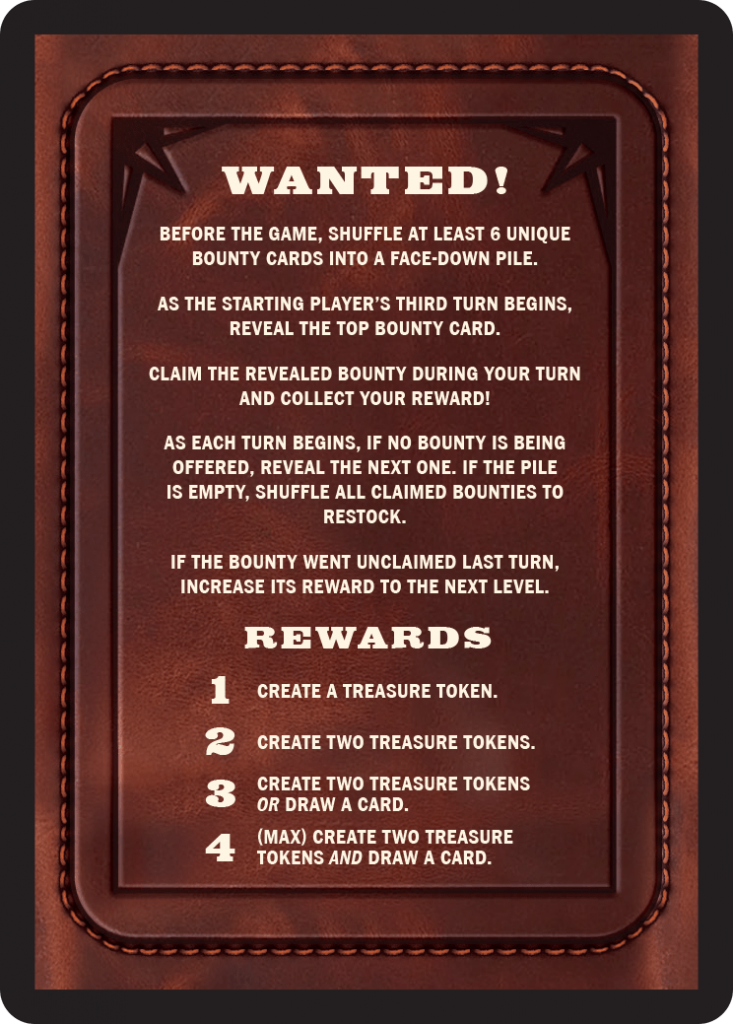
Bounties are an addition to the Commander decks released alongside the main set. If your game includes them, a communal deck of at least six of the twelve bounty cards is created with no duplicates. Beginning on the third turn of the starting player and once per turn, the active player may fulfill the conditions given on the card and claim the reward. If they do not claim the reward the first turn it offered, then the reward level is increased each turn until it hits level four. Once all cards in the deck have been claimed, they are reshuffled and can be claimed again.
FromTheShire: I’m primarily a Commander player these days so I’m theoretically the target audience for these, and I think they’re…fine? For like a few games played with the precons at least. After that, why are we playing with this random extra deck of hyper-specific Thunder Junction cards hunting bounties with all of our non-Thunder Junction commanders? I realize I am likely in the minority with caring about the feel of a game of Commander in today’s game, but adding on an entire separate deck on top of everything else going on with Universes Beyond and the like just makes it feel like there is a point where something is lost from the vibe and the narrative of the game for me.
BPhillipYork: Oh good even more weird crap to add on to your game. Maybe we can do an archenemy planechase bounty game. These things never take hold and never catch on and are just dumb gimmicks. This is yet another themed dumb gimmick that doesn’t add enough to the game, and is optional so it won’t be used (dungeons and the initiative are not optional, you can force your opponents to deal with those mechanics).
Next Time: The Set’s Multicolor Cards
That wraps up our look at the mechanics of Outlaws of Thunder Junction. We’ll be back later to look at the most noteworthy cards in the set, starting with the multicolor cards in the main set, then in the following articles we’ll cover monocolor and colorless cards before moving on to the set’s Commander decks. As always, if you have any questions or feedback, drop us a note in the comments below or email us at contact@goonhammer.com.
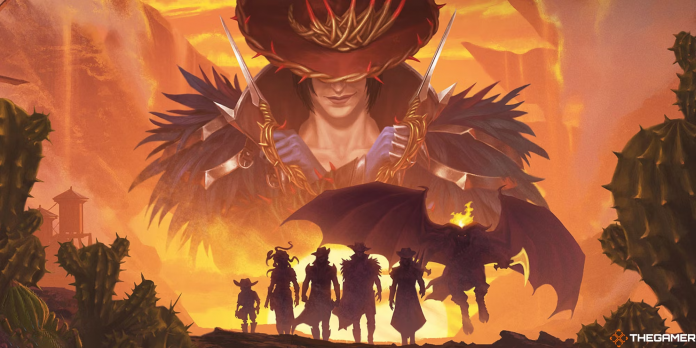


You must be logged in to post a comment.